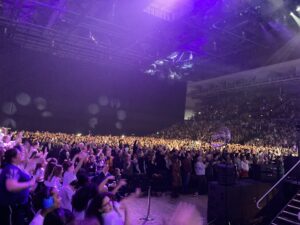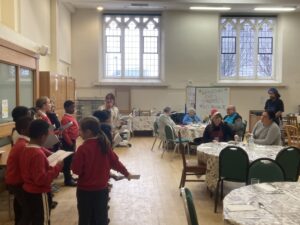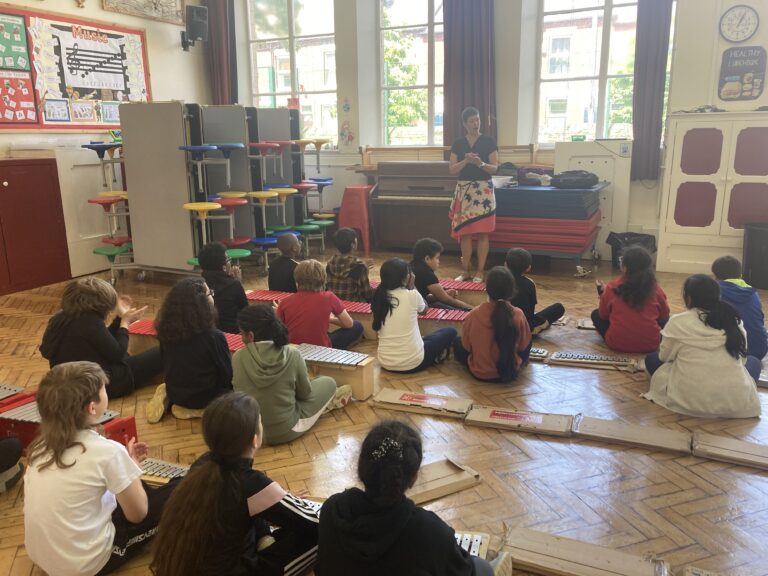
INTENT - OUR VISION FOR MUSIC
The aims of our Music curriculum are to develop pupils who:
WHY MUSIC IS IMPORTANT?
Music plays a major part in the life of the school and children participate in a variety of musical activities as part of the curriculum, including singing, choir, school performance and learning to play xylophone in Y3, Y5 and Y6 and the violin in Y4. The music curriculum gives children opportunities to listen to music, appraise, improvise, compose and perform. Music is taught by a specialist teacher in Y3- Y4 and all children are given the opportunity to learn to play a musical instrument. children are able to demonstrate their skills to live audiences with growing confidence, through performances in activities, such as, Parent assemblies.
Lessons enable children to develop their skills, appreciate a wide variety of music and begin to appraise a range of musical genres.
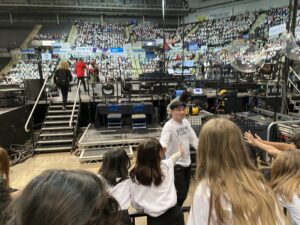
IMPLEMENTATION – MUSIC PLANNING & SEQUENCING OF KNOWLEDGE & SKILLS
Music teaching at Porter Croft delivers the requirements of the National Curriculum. We have created our curriculum through using the non-statutory Model Music Curriculum and use of the Charanga Model Music Curriculum schemes of work to create lessons and classroom teaching content. Music lessons are broken down into half-termly units and an emphasis is placed on musical vocabulary, allowing children to talk about pieces of music using the correct terminology. Each unit of work has an on-going musical learning focus and lessons usually follow a specific learning sequence:
- Listen and Appraise
- Musical Activities (including pulse and rhythm)
- Singing and Voice
- Playing instruments Improvisation / Composition
- Perform and Share
Porter Croft is Children in Year 3 and 4 also benefit from whole class specialist teaching, delivered by Sheffield Music Hub service. These lessons allow children the opportunity to learn to play an instrument as part of an ensemble and to engender a love of music learning. Children also engage in music learning through the weekly whole school music assembly. In these assemblies, children sing and perform together, as we as learn about music from around the world and from range of composers.
To find out how MUSIC is planned & sequenced in order that our children can progress through the building blocks for learning, please click below

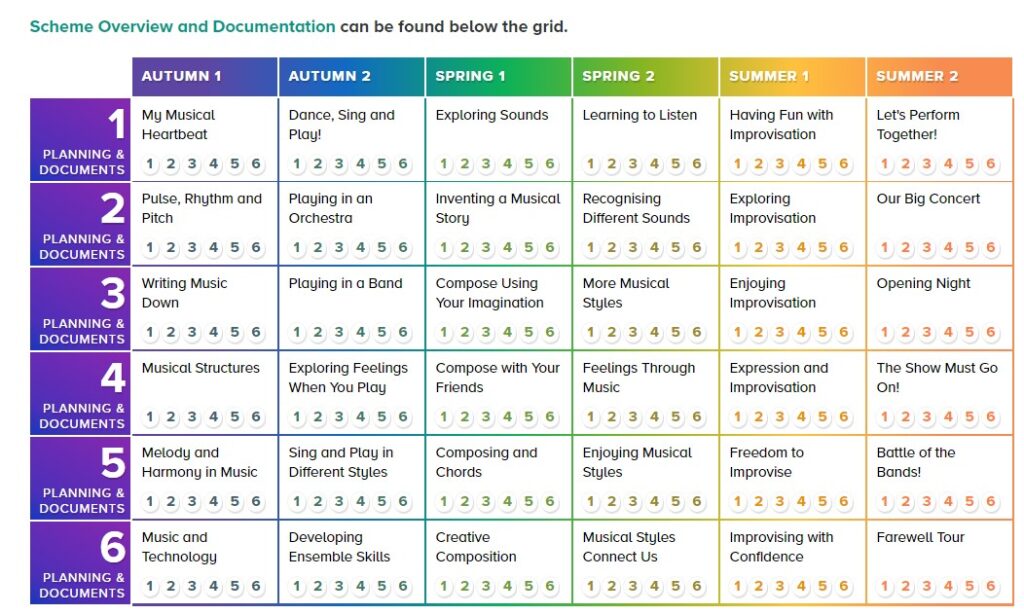
NATIONAL CURRICULUM PURPOSE OF STUDY
IMPACT OF OUR MUSIC CURRIUCLUM
At Porter Croft, our music curriculum is planned to demonstrate progression and build on and embed skills. We focus on progression of knowledge and skills in the different musical components and teaching of vocabulary also forms part of the units of work. If children are achieving the knowledge and skills in lessons, then they are deemed to be making good or better progress. We measure the impact of our curriculum through the following methods:
- Pupil discussions and interviewing the pupils about their learning (pupil voice).
- Annual reporting and tracking of standards across the curriculum.
- Photo and video evidence of the pupils practical learning.
- Dedicated music leader time.
The impact of our music curriculum is also measured in the uptake of our music school clubs (Young Voices and choir) and uptake of additional music 1:1 teaching.Pupil discussions and interviewing the pupils about their learning (pupil voice).Annual reporting and tracking of standards across the curriculum.Photo and video evidence of the pupils practical learning.
INCLUSION
All music lessons/activities are designed and planned to include all children through a range of approaches. Lessons are planned to facilitate the best possible outcome for all children within the class.
Children are supported through first quality teaching and tailored learning. Consideration will be given to adapting the task or providing peer or adult support. It is important to note that pupils with learning difficulties can achieve well in music and are given every opportunity to access a broad and balanced curriculum.
USEFUL MUSIC WEBSITES
http://www.k-12music.org/
http://artsedge.kennedy-center.org/
http://www.classicalmusicarchives.com
http://www.cpdl.org
https://www.rockhall.com/learn/education/rockin-schools
http://www.musictechteacher.com/
http://www.musictheory.net
http://www.teoria.com/
http://www.good-ear.com/
http://www.nyphilkids.org/
http://www.dsokids.com/
http://www.sfskids.org/
http://www.nsokids.org/
http://pbskids.org/jazz/
http://www.ncsymphony.org/education/education.cfm?ssid=2&sid=1
https://www.teachingkidsmusic.com/homs.html


